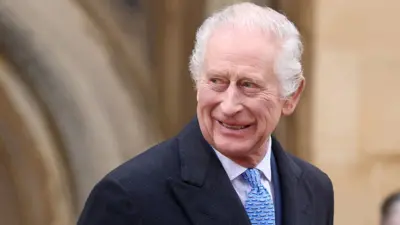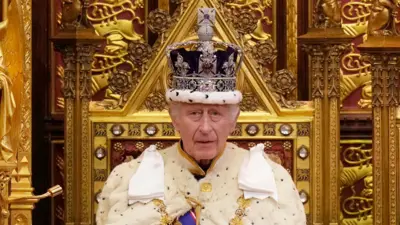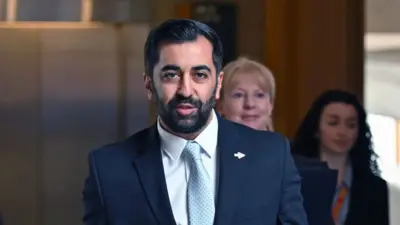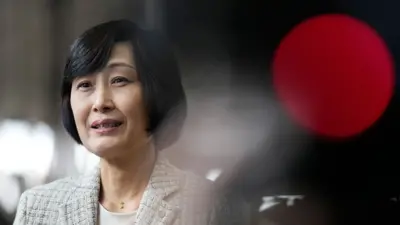We've updated our Privacy and Cookies Policy
We've made some important changes to our Privacy and Cookies Policy and we want you to know what this means for you and your data.
VP debate: Did gender play a role in the interruptions?
- By Helier Cheung
- BBC News
Wednesday night's vice-presidential debate was widely seen as civil, but with few memorable moments.
Yet one exchange that resonated strongly with many viewers - especially women - was when Kamala Harris responded to Mike Pence interrupting her by smiling and saying: "Mr Vice-President, I'm speaking… If you don't mind letting me finish, then we can have a conversation."
In fact, Ms Harris responded to an interruption with the phrase "I'm speaking" on three occasions.
Many considered these to be poignant moments that chimed with their own experiences of seeing women struggling for air time, or being interrupted by men in work situations.
This article contains content provided by Twitter. We ask for your permission before anything is loaded, as they may be using cookies and other technologies. You may want to read Twitter cookie policy and privacy policy before accepting. To view this content choose 'accept and continue'.
End of Twitter content, 1
This article contains content provided by Twitter. We ask for your permission before anything is loaded, as they may be using cookies and other technologies. You may want to read Twitter cookie policy and privacy policy before accepting. To view this content choose 'accept and continue'.
End of Twitter content, 2
Ms Harris was "clearly prepared" for interruptions, says Deborah Tannen, a linguistics professor at Georgetown University and expert in gender differences in language use.
She came across as "respectful" by saying "Mr Vice-President", while "I'm speaking" was not accusatory in the way "stop interrupting me" would have been, Dr Tannen told the BBC.
"Clearly her challenge throughout the whole debate was to avoid coming across as aggressive," she said.
"There's a double bind for women - because anything you do to come across as a forceful candidate violates expectations for women. I think she walked that fine line extremely well."
So what are the facts - and did gender play a role?
Mr Pence interrupted Ms Harris more than she interrupted him - a CBS tally found the vice-president interrupted the California senator 10 times, while she interrupted him five times.
Meanwhile, NBC news tracked nine interruptions by Ms Harris, and 16 interruptions by Mr Pence.
But these figures pale in comparison to the number of interruptions during the presidential debate between Donald Trump and Joe Biden last week.
According to one Washington Post tally, Mr Trump made 71 interruptions compared with Mr Biden's 22.
Image source, EPA/Reuters
Given that the raucous Trump-Biden debate was almost universally criticised, it's not surprising that Mr Pence and Ms Harris appeared to make an effort to keep their exchanges civil.
But a CBS tally still found that Mr Pence ended up with more speaking time - 38 minutes, to Ms Harris' 35 minutes.
The moderator, USA Today's Susan Page, was criticised for failing to stop both candidates, particularly Mr Pence, from interrupting, especially as Mr Pence often exceeded the time limits for speaking.
At one point, Ms Harris fought to speak and said: "He interrupted me, and I'd like to just finish, please."
Previous studies have suggested that gender can play a role - often subconsciously - in how much people interrupt.
One 2014 study found that speakers tend to interrupt more when speaking with a woman rather than a man , while a 2017 study found this trend even existed at the top - with male Supreme Court justices interrupting female justices three times more than they interrupted each other.
Image source, Supreme Court of the US
And women can face a double bind when they fight to be heard - because studies suggest women who interrupt are penalised more harshly than men who speak out of turn, and powerful women can incur a backlash when they speak more than others.
A well-documented phenomenon, says Dr Tannen, is that "when women talk equally to men they're perceived as talking more" - presumably because people expect them to speak less.
Another factor, she adds, is that "frequently, women will give way more quickly than men will" when being interrupted.
But gender isn't always the only factor at play. Mr Trump interrupted Mr Biden more than 70 times in last week's presidential debate, compared to the 51 times he interrupted Hillary Clinton during the first presidential debate in 2016.
And in the 2016 vice-presidential debate, Democrat Tim Kaine interrupted Mr Pence 70 times, compared to Mr Pence's 40 times.
What about ethnicity?
Ms Harris is the first black, and Asian, vice-presidential candidate - and many believe she was also conscious of stereotypes about ethnic minority women when responding to interruptions.
"There's this trope of the angry black woman and she knows she has to avoid that," Melissa Michelson, a political science professor at Menlo College, told Mercury News.
Meanwhile, commentator Jessica Yellin praised Ms Harris on Instagram, writing: "The challenge for women, and for the first woman of colour to be on a major presidential party ticket especially, is to take back your time without media and swing voters calling ya "difficult" "tough" "aggressive." Answer: Do it with confidence, a smile and gleam in your eye."
Of course, not everyone was impressed with Ms Harris' debate performance, or the way she and Mr Pence interacted.
One focus group of undecided voters, asked to describe the candidates in one word, chose words including "calm", "bland", "presidential", "comfortable" and "typical politician" to describe Mr Pence, and "evasive", "abrasive", "snarky" "too rehearsed" and "unpresidential" for Ms Harris.
Frank Luntz, who organised the focus group, told Fox News that, while voters were frustrated with the vice president for repeatedly running over his allotted time, "Harris' reactions to Pence - the smiling, the smirking, the scowling" left them far "angrier".
"It was clear that Mike Pence was the winner of tonight's confrontation," Mr Luntz, who has mostly worked for Republican clients in the past but is not working for any political party in the 2020 election, added.
By contrast, a CNN instant poll of registered voters found that 59% felt Ms Harris had won, while 38% preferred Mr Pence.
Are viewers influenced by gender and ethnicity?
It's difficult to say - but the same CNN poll certainly found that women had a better impression of Ms Harris than men.
After the debate, 56% of men and 70% of women polled had a favourable impression of Ms Harris - while 50% of men and 32% of women had a favourable impression of Mr Pence.
And whether or not gender and ethnicity have influenced voters' perceptions, they certainly seem to have had an impact on media coverage of Ms Harris.
One recent study described "sexist and racist bias" in how the news of Mr Biden's vice-presidential pick was covered.
TIMES UP Now, which describes itself as an independent charity focused on improving work environments for women, said its study found that nearly two-thirds of media coverage mentioned race and gender, compared to just 5% of coverage in 2016 for Mr Pence and Mr Kaine.
A large proportion of this coverage would have reflected the historic nature of the nomination - given Ms Harris was the first black and Asian VP pick and one of only a few female candidates.
However, a quarter of the media coverage of Ms Harris included "racist and sexist stereotyping and tropes", including the "Angry Black Woman" trope and "birther" conspiracies, TIMES UP Now said.
"This shows that when white men are running for elected office, their identity is viewed as the "default" for leaders in our society," it added.
So - how can you deal with interruptions?
Dr Tannen argues that, for political debates, "the solution has to lie not with the candidates, but with the moderators and organisers".
She suggests switching off candidates' microphones when their time is up - or, "if a candidate speaks over their allotted time, give that amount of time to the other candidate, immediately".
Meanwhile, in the workplace, "the best thing is if a woman can have a partner, female or male, who will speak up for her".
It's a lot easier for somebody else to say "I'd like to hear what she has to say", than for the interrupted person to say "let me finish", Dr Tannen adds.
Top Stories
Features & Analysis
Most read
Content is not available








